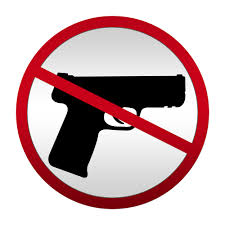 In the last period America was rocked by dozens of tragedies; former Navy reservist Aaron Alexis in last mid-September killed 12 people at the headquarters of the US Navy. This was the worst massacre of its kind in the United States since the massacre at an elementary school in Connecticut, where 27 people lost their lives. There were found fighting AR-15 rifle, a shotgun and semiautomatic pistol with Aaron Alexis, who was eventually killed by police.
In the last period America was rocked by dozens of tragedies; former Navy reservist Aaron Alexis in last mid-September killed 12 people at the headquarters of the US Navy. This was the worst massacre of its kind in the United States since the massacre at an elementary school in Connecticut, where 27 people lost their lives. There were found fighting AR-15 rifle, a shotgun and semiautomatic pistol with Aaron Alexis, who was eventually killed by police.
Just a few days later, a new tragedy happened. At least thirteen people were injured in the exchange of fire between local gangs in the basketball field in the southern part of Chicago. Last year in Chicago were killed 506 people (in New York, which has almost four times as many inhabitants killed 419 persons) and the rate of homicides in the city increased by 16 percent over the previous year.
After these events, President Barack Obama urged the public support in the measures that will limit the carrying of weapons. Yet last December, Obama has been trying to push through a bill that would restrict the sale of guns and introduced additional checks when buying (NRA), but Congress rejected this proposal, noting that constitutional rights were endangered.
Let us recall that the Second Amendment of the US Constitution reads: “A well regulated militia being necessary to the security of a free state, the right of the people to keep and bear arms shall not be infringed.” This is also the main obstacle to passing legislation that would introduce stricter controls and regulations in the purchase and sale of firearms in the highest legislative body of the United States.
However, even if such a law is once passed by Congress, would ie really be a contribution to the reduction of murders? Federal State of Connecticut, where the tragedy occurred last year, had very restrictive laws compared to the other states. Here is a prohibited purchase of combat rifles, and there are no, so-called, ‘gun-free zones’. On top of these regulations, an unprecedented crime still occurred. One must take into account that most murders committed in a cold, not firearms. Therefore, the crimes still would not reduce, even if the thesis about reducing the number of murders by banning weapons has proved to be right.
Moreover, within municipalities, counties and cities, the police is not always ready to respond to repeated crimes, and usually lates in responding. However, security is primarily a personal responsibility and people have a natural right to defend themselves.
Back in 1998, John Lot has released the first edition of the book “More guns, less crime”, presenting the results of eleven statistical laws governing the sale of firearms in relation to crime rates. The writer concludes in this book that the crime rate is lower in countries where citizens are allowed to carry a weapon. This could be logical, because it demotivates the criminals to commit crime since that they know that the public is armed and that they can be returned fire. It is really interesting that Lot cites several examples where armed citizens prevent attackers to make a massacre in schools (Perl in Mississippi and Edinbro in Penisilvania). If there were no armed citizens who have stopped the attackers, no one knows how many lives could have been lost until police could arrive.
he author also deals with the problem of black market weapons, to whom the ban would inevitably come (Lot cites the example of the so-called. Brady law from 1993 which has been pushed by the Clinton administration). The ban would lead to illegal channels of purchase, including stealing, and this could again lead to new crimes and billing.
On this occasion, we can look back on the case of Saško Bogeski in Serbia who killed burglar in defence. Would he be alive if he did not have a gun? Would he still be alive if he was waiting for police response (which would certainly came after the commission of the crime, then post-factum)? Can it be considered justified his act?
What is the alternative to the prohibition of weapons in the prevention of crime and new murders? Many experts have proposed a variety of measures. Some of them argue that the revitalization of civil society, based on family, religion, civil and social institutions and peaceful cooperation through markets will lead to a tolerant and peaceful society. But is that really enough?
These narratives seem abstract, but it is important to bear in mind one thing – banning weapons certainly will not inevitably lead to a reduction in crime rates. Words of Benjamin Franklin are still very current – those who give up liberty for the sake of security does not deserve neither.



